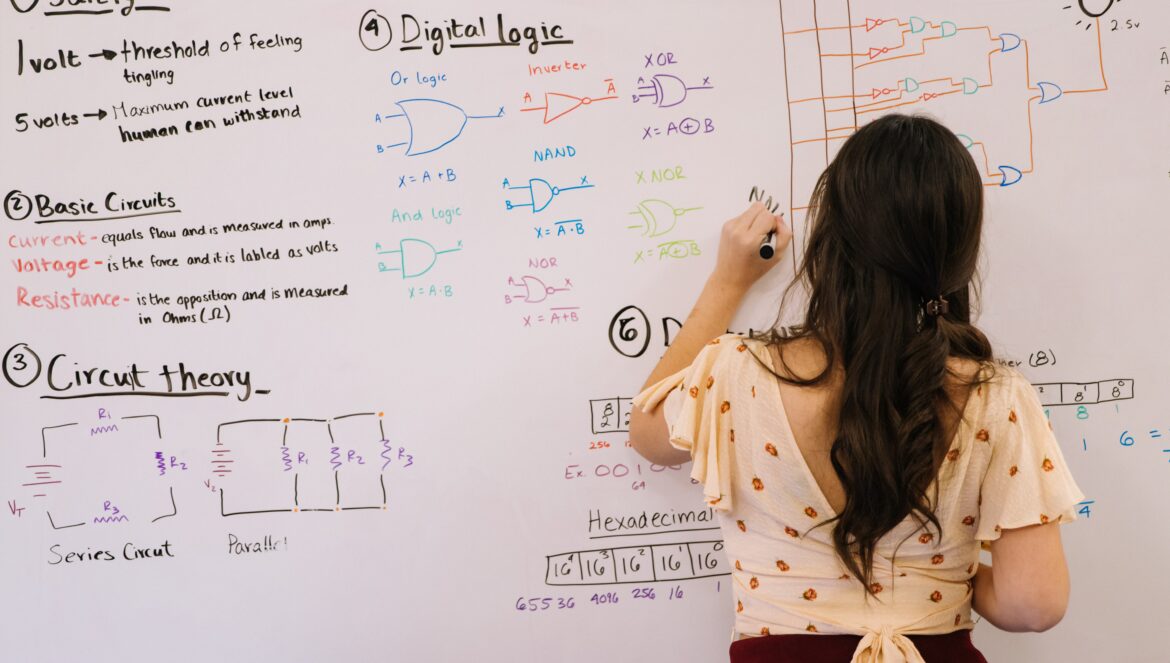Table of Contents
As new technology enters our classroom, educators must focus on building AI Proof skills that will allow students to learn how to safely navigate these tools. They also need to develop the interpersonal skills necessary to thrive. A central part of that is developing an agile mindset. An agile mindset teaches people to actively think outside the box and experiment in small increments to solve complex problems.
In the last few weeks, we have learned about the capability of ChatGPT and how education misunderstands this new tool. As educators, we must assess our current pedagogy and reflect on our mission. If education aims to prepare our students for the future, how will we shift to work with these new technologies?
Using Agile to Create AI-Proof Skills
Our current technology can pull facts, put together sentences, and sort data. Therefore, we must purposefully teach students how to reframe situations and approach issues from different perspectives. An agile mindset values collaboration, innovation, and problem-solving. Instead of acknowledging that situations can change, agile opens the mind to possibilities, divergent ways of thinking, and multiple paths to goals.
It helps students become more resilient, adaptable, and flexible in their cognitive paths. An agile mindset promotes learning through taking risks in assumptions, experimentation, and reflection on the positive and negative results. Our students must learn and become fluent in these skills as they will need them to navigate AI.
Tangible Agile Mindset
Students cannot cultivate an agile mindset in a vacuum. They must practice during lessons and when there are opportunities for collaboration. It is not enough to tell students that it is essential for them to problem-solve differently; it is not an advisory class or an assembly with a new PowerPoint.
An agile mindset is a collection of skills that must be scaffolded, modeled, and practiced. It requires students to manipulate knowledge independently, make predictions, explore possibilities, and reflect on what was learned. An agile mindset helps students see that the wrong answer isn’t the final stop but an opportunity along the learning journey.
For future-focused teachers ready to stretch beyond a growth mindset and challenge students to think beyond the first result from google or focus on THE answer, these exercises can help students learn content, have opportunities for hands-on learning, and develop an agile mindset that will benefit them throughout their lives.
Using Challenge Days to Develop Test Agile Skills
During large units, there is always a risk that the classroom can get monotonous. When you have to teach a large amount of content, it is easy to slip into a rut where an agile mindset is challenging to develop. It is time for a Challenge Day when the class feels too repetitive!
Instead of a normal day in class, student teams are thrown into learning challenges that reinforce content, provide hands-on learning, and opportunities to grow their agile mindset. The Challenges are always completed in teams and usually encompass skills taught in other classes. This helps build an agile mindset because students use English skills in their math class or science skills in their history class, and it breaks down the “rules” of how learning should look in different classes.
Purpose of a Challenge Day
A Challenge Day may be several tasks the team must complete by the end of the class period. This keeps students on their feet, excited, and applying the content knowledge in new and novel ways.
Examples of Challenges may be:
- Participate in a game of charades using vocabulary words.
- Write a haiku to express how to multiply fractions.
- Write a Greek Myth that explores the powers of Congress. Must include correct literary elements from English class.
- Nominate a fictional character to the role of the Presidential cabinet. Why should the Senate approve them?
- Create a rap battle between characters in a book expressing their conflict and presenting their sides.
Making Learning Fun Using Agile
Challenge Days break up the class flow, give students time to be silly, and help them safely build connections outside their normal classroom tasks. They can see how different content areas work together and how to build strong relationships between seemingly unrelated topics. The ability to link unlike ideas and find connections between different areas of expertise are the sparks of innovation. Challenge Days practice and celebrate difficult skills students must learn when basic recall can be automated. The celebration of making this a special day gives positive reinforcement to access creativity and try new ideas.
This is a small way to implement agile into the classroom and build an agile classroom.
Read Part 1 of this three-part Agile for Learning series here.

